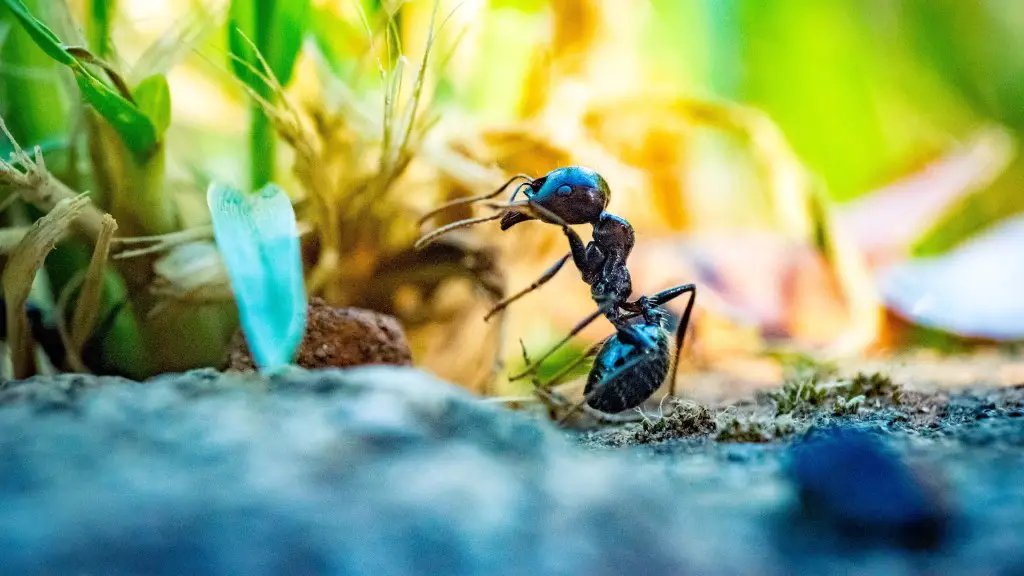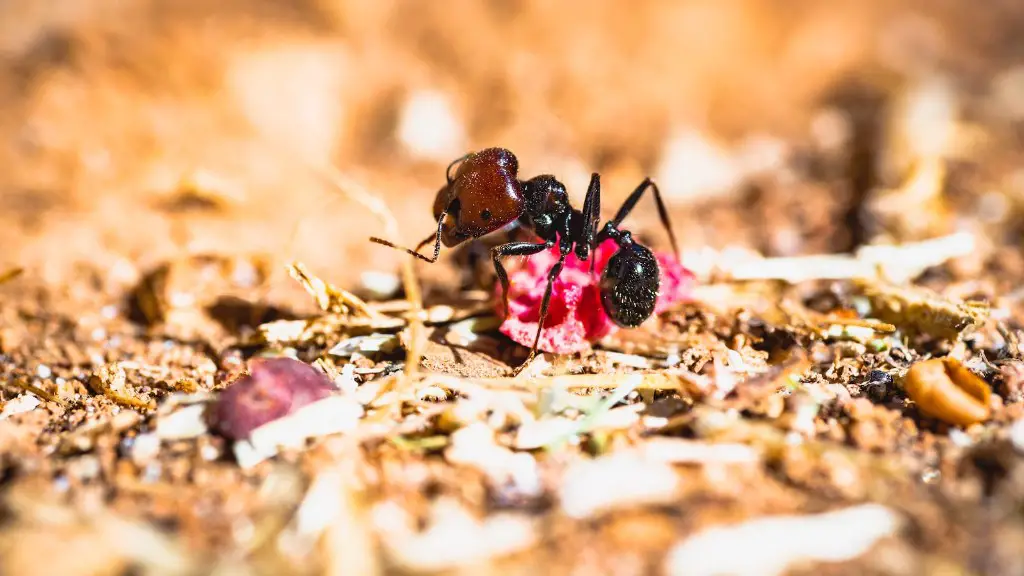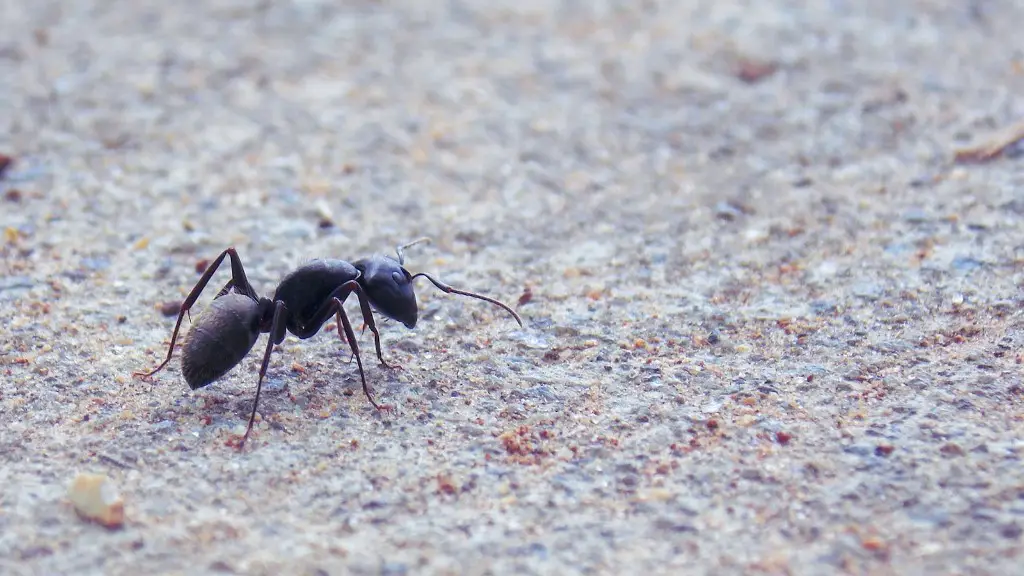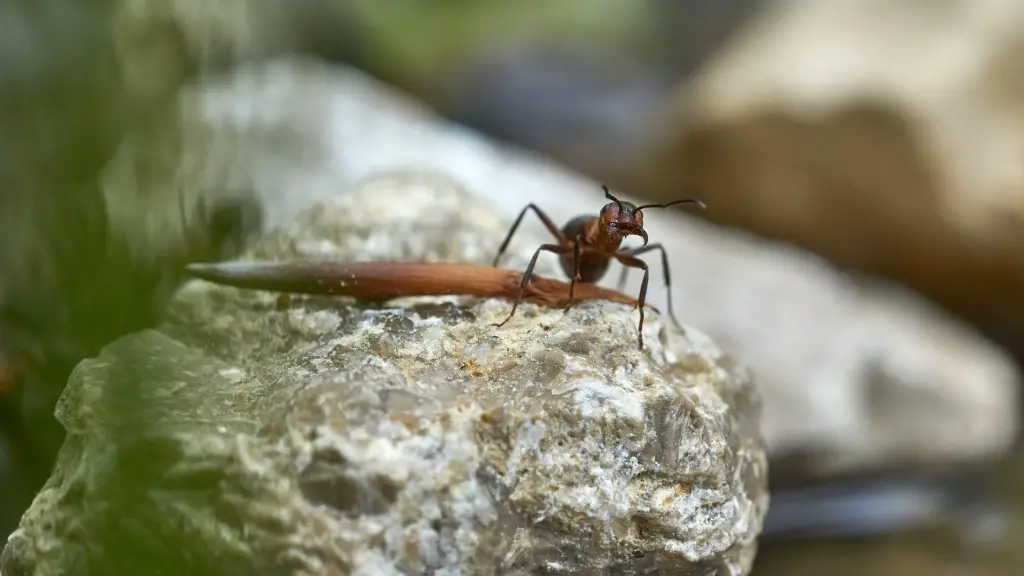While many insects are beneficial to their environments and outdoor ecosystems, little brown ants can become quite a nuisance for people. Whatever their reasons for invading human properties, these pests can gather in alarming numbers quickly and make the house owners uncomfortable. In this article, we provide information on how to get rid of little brown ants while avoiding the use of hazardous chemicals.
The first and most important step to getting rid of little brown ants is identifying the type of pest you’re dealing with. Depending on the species, different methods may be more efficient than others. Identification is also important because it lets you know where the ants’ nest is located. Knowing the location of the nest is key in order to guarantee their successful extermination.
Now, the best way to go about getting rid of little brown ants is to use natural remedies such as boric acid and soapy water. Boric acid is easily available in powder form and can be sprinkled around the affected areas. The same applies to soapy water and it has the additional advantage of being safe to use around children and pets. Also, these two natural remedies are relatively inexpensive and much safer than store-bought ant killers which often contain hazardous chemicals.
However, you can always try the traditional traps. They usually work well against most ant species and there are quite a few of them you can pick from. Homemade traps can be equally effective if you’re willing to get creative. The trap you choose should have something sticky in it as this is what attracts the ants, and also some kind of poison as that’s what will ultimately kill them.
Additionally, it’s important to keep surfaces around your home and outdoors clean to prevent the infestation from getting any worse. Because they are attracted to moisture and crumbs, it’s best to keep your kitchen area and outdoor areas clean, so any food debris is wiped away and any puddles of water are mopped up. This can also be a permanent solution when it comes to keeping little brown ants away!
In conclusion, getting rid of little brown ant infestations should be relatively easy if done in the correct way. Natural remedies such as boric acid or soapy water can be used around the home, as well as homemade traps or traditional store- bought traps. Keeping your home and outdoor areas clean and dry is also essential. This article provides a few useful tips on how do fight little brown ants without resorting to hazardous chemicals.
Differentiating Ant Species
A significant number of ant species exist in the world, and it’s important to differentiate them properly in order to be able to choose the correct method for eradication. Over the years, several thousand species have been identified and catalogued, often in the form of visible morphological morphological difference. Such differences usually consist of antennae, jaws, wings and body shape. Identification also requires information on the size of the workers and other caste members, possible colour variations, as well as the activities they carry out within the colony.
Biological and Chemical Control Methods
The control of ant species in a particular area or indoors depends on the type of infestation. If the problem is severe enough, it’s possible to try using insecticides in order to eliminate the pests. However, such chemical formulas can be hazardous to people’s health and highly disruptive to the natural environment. Alternatively, increasing the use of natural predators such as spiders and lizards can be beneficial. Predators consume large numbers of ants, therefore keeping the population under control. Lastly, using biological control measures such as insect-resistant plants and introducing species that are not native to the area can help in the long run.
Traps and Baits
One of the most common and available means of eliminating ants from a home are traps and baits. The market offers a wide variety of pre-made ant traps, varying from sticky traps to bait stations containing poisons. Traps are placed in obvious infestation and foraging areas, and baits are scattered around in small doses, as too much can be detrimental to the ants and disrupt the colony’s foraging activity. Alternatively, it’s also possible to make bait stations. This can be done by purchasing non- hazardous, natural ant bait from the store and then placing it in different areas of the house.
Combating Possible Causes
The source of the infestation should always be identified. If a nest is found in the garden, the nest should be buried and natural detergents should be used to clear away the dirt. If the nest is located inside the house, it can be treated with a non-toxic substance such as soapy water, or with a natural insect killer substance for tougher infestations. Also, surrounding areas should be cleared and the ant entry points should be sealed to prevent reinvasion.
Using Essential Oils
Essential oils have been known to have an effect on ant infestations, as they contain strong insects repelling properties. The scent and smell of these oils often act as natural deterrents to all sorts of pests including ants. Most commonly, cedarwood, citronella, eucalyptus, lavender, peppermint, and tea tree essential oils are used to drive away ants. To apply them, a few drops of the essential oil can be added to a damp cloth, cotton ball or spray bottle filled with water, and then the treated item or liquid can be placed near the infestation.
Regular Cleaning
When it comes to preventing ant infestations from occurring, regular cleaning is key. Any food crumbs, spills or sugary residues should be wiped up as soon as possible. Kitchen surfaces, floors, and other areas should be wiped with bleach or a vinegar-water solution on a regular basis. Taking out the trash before it has a chance to accumulate can also be very helpful. Lastly, leaky pipes, sinks, or water sources should be identified and fixed as soon as possible.



